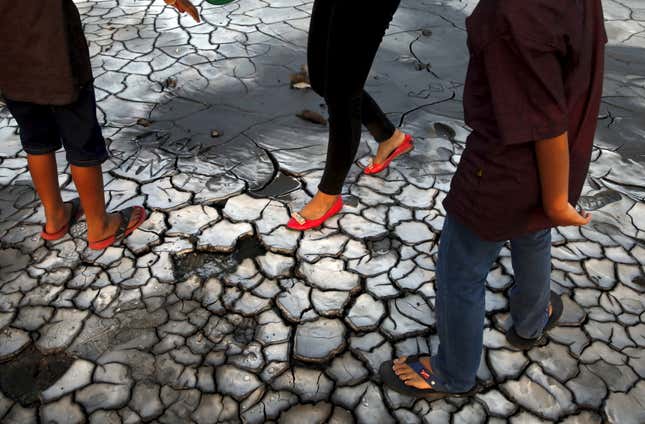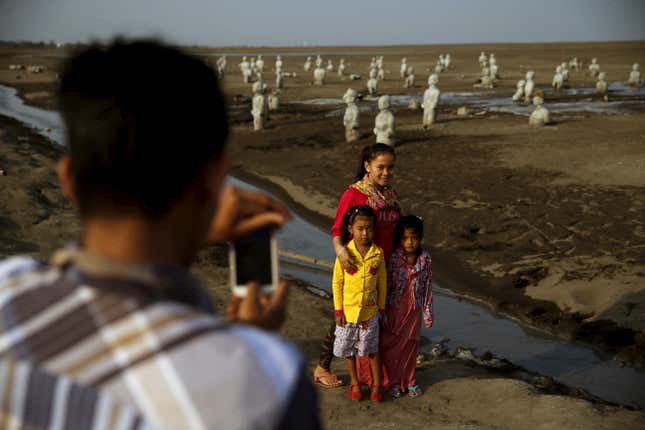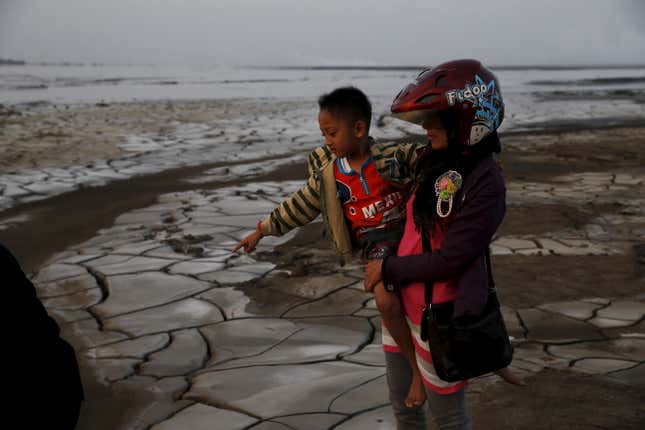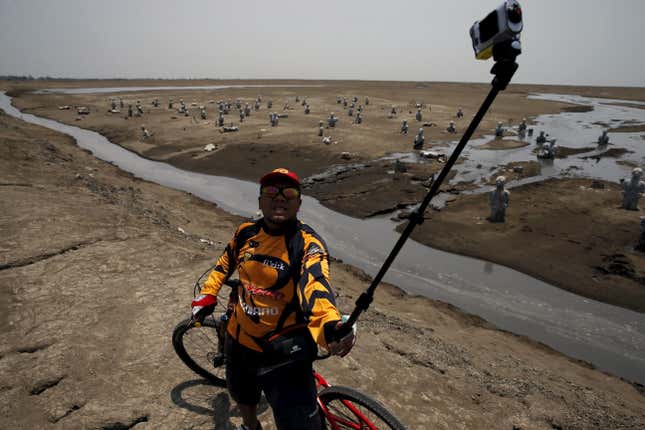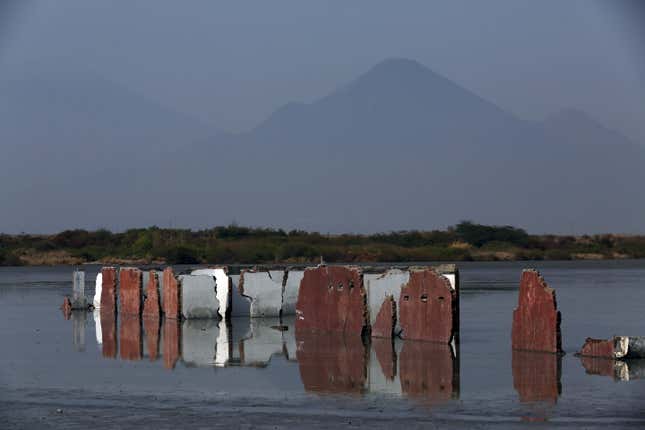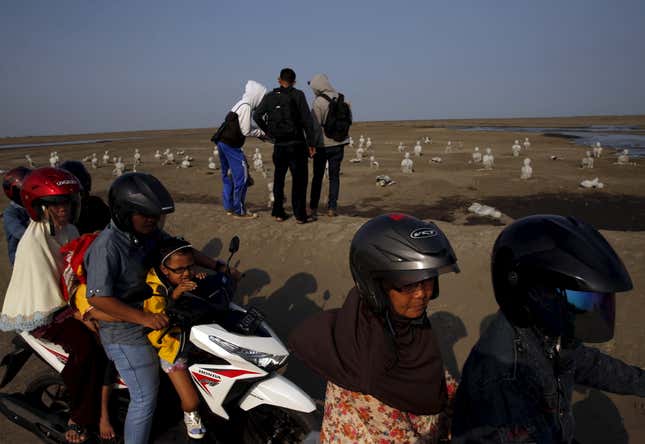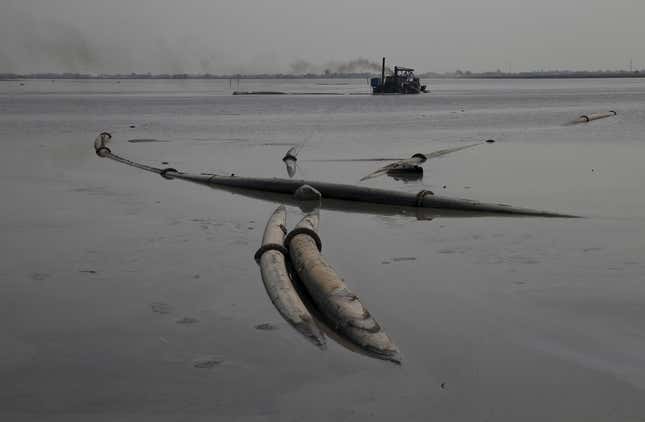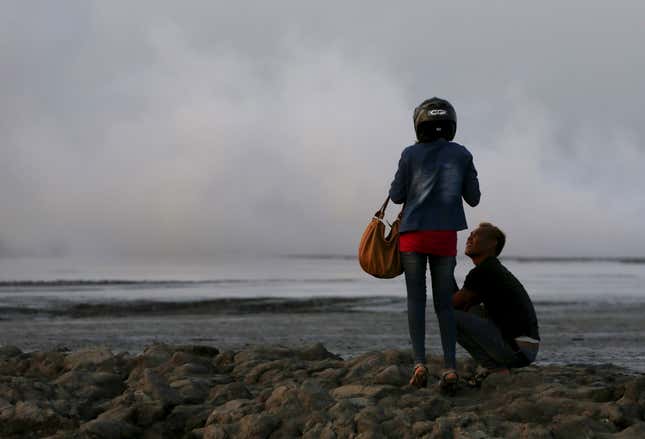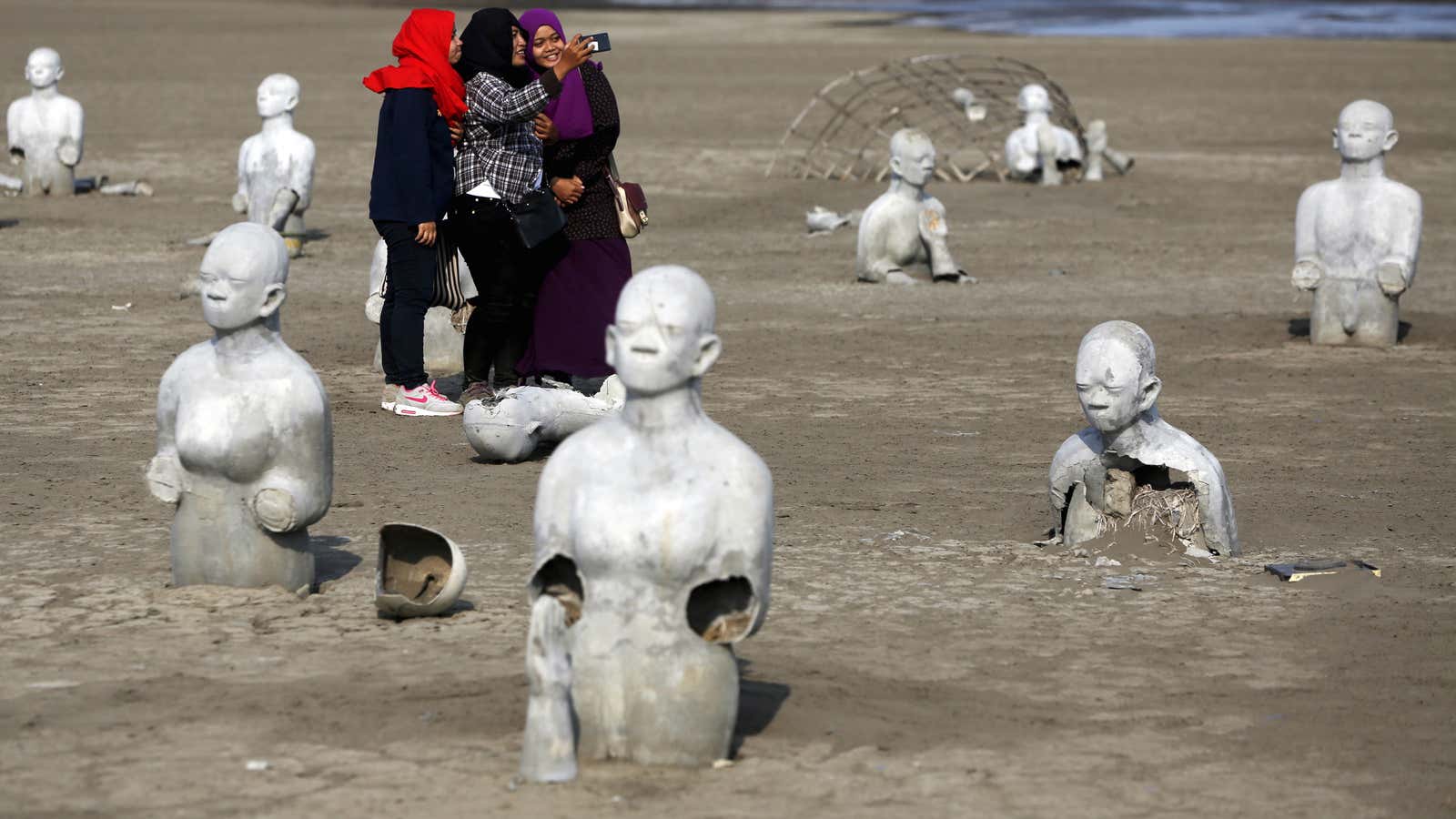The world’s biggest mud volcano is awful-smelling, continuously erupting, and a surprisingly popular tourist destination.
In May 2006, a volcano of mud exploded in Sidoarjo, Indonesia. Likely triggered by the nearby drilling of a local fossil fuel corporation, the flows of hot mud displaced tens of thousands of Javanese villagers, and have continued to flow ever since.
Today, with fields submerged by sludge, the area’s former agricultural industry has been replaced by disaster tourism: Sidoarjo villagers give tours to curious visitors from all around the world, and sell videos of the disaster that robbed them of their livelihoods and provided a new one.
